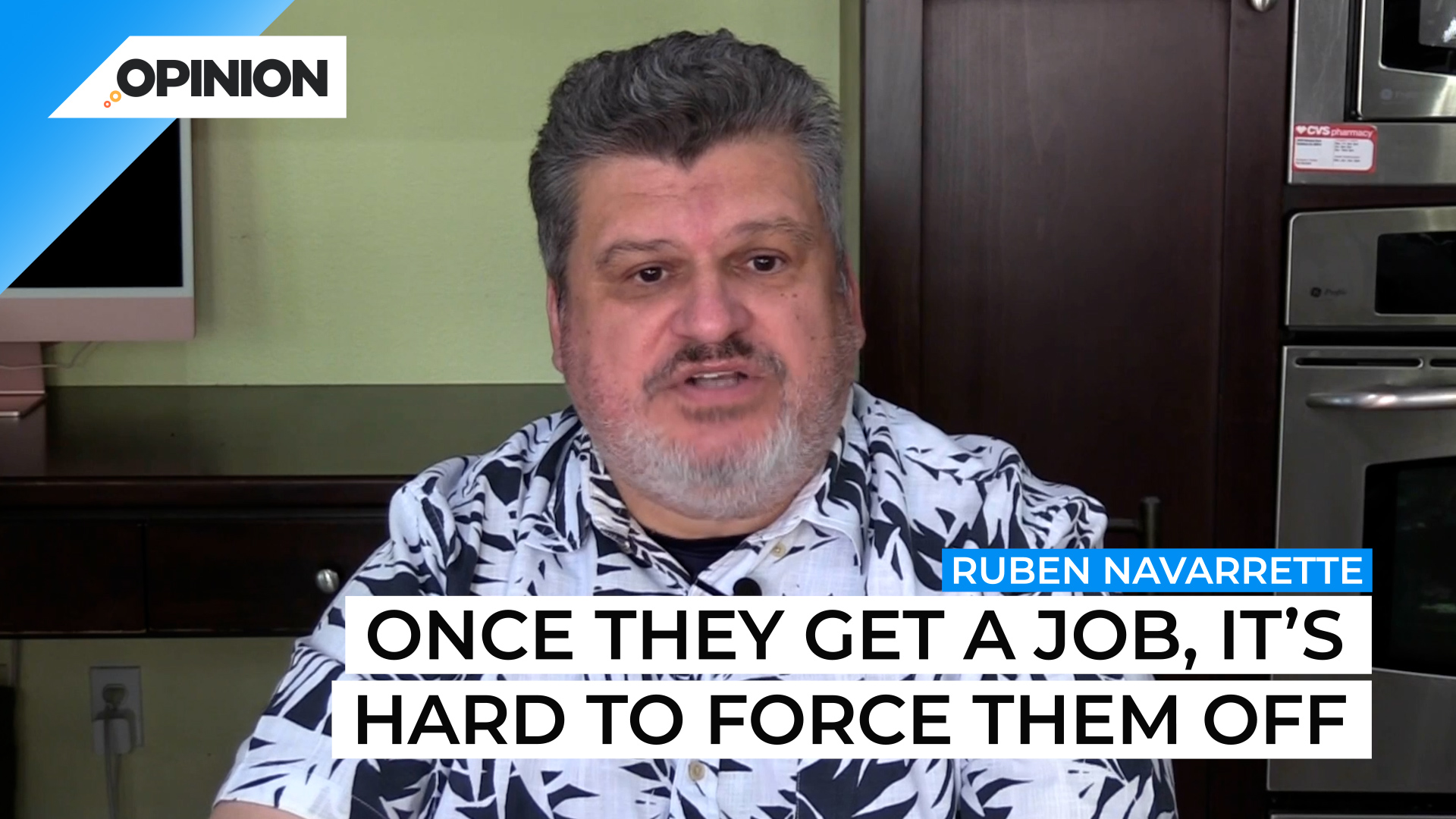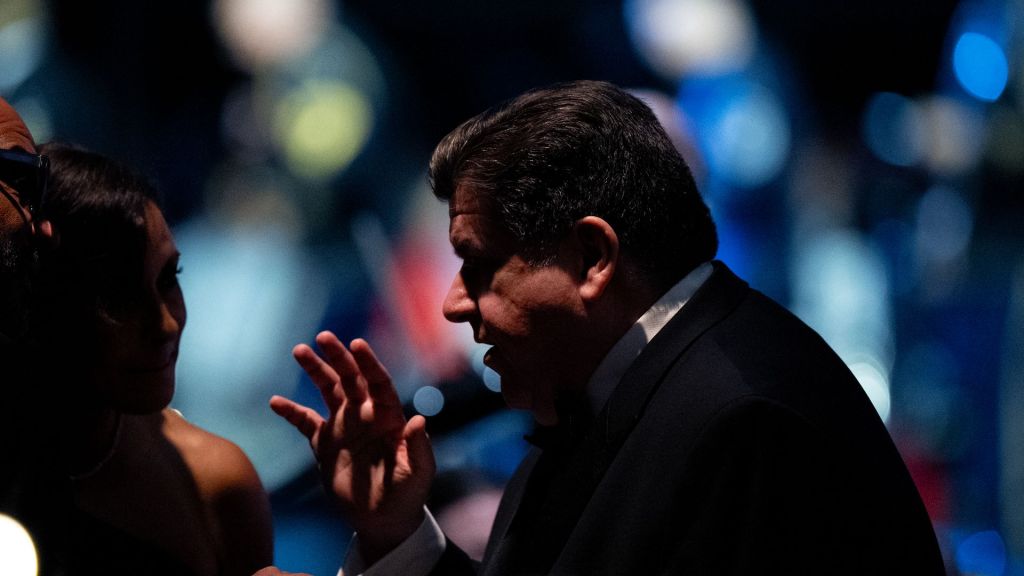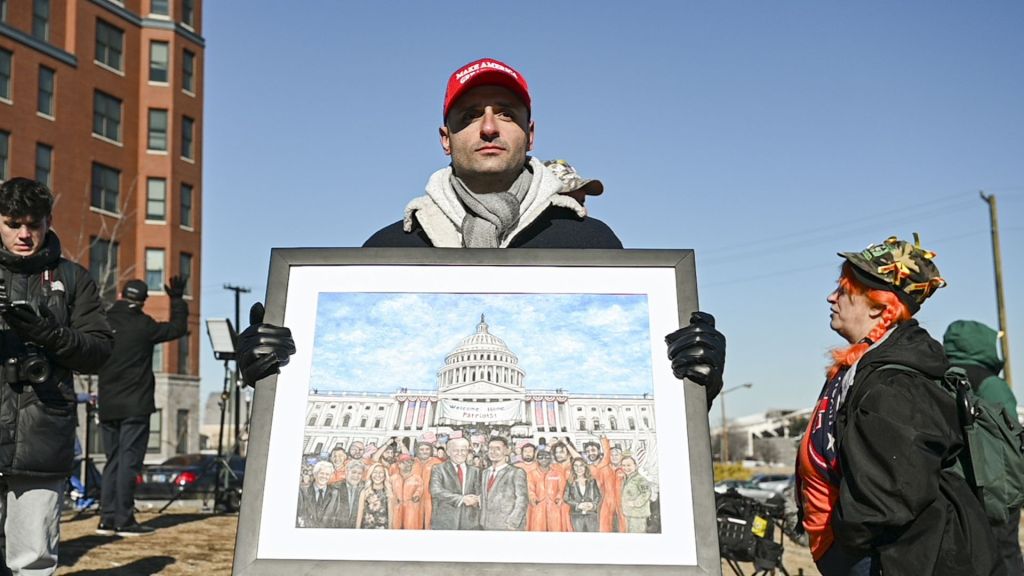
Commentary
-
Our commentary partners will help you reach your own conclusions on complex topics.
Lately my mind has been fixed on the color blue. Maybe it’s because the divide between law enforcement and communities of color, ie blacks and Latinos is only getting wider and more dangerous. Or maybe it’s because Americans are still bombarded by video footage on the evening news, a police officers bullies with bandges disgracing their profession by hurting or killing people. Or maybe it’s because Best Selling Author James Patterson has a new book out, walk the blue line that lets cops tell their own stories. Or maybe it’s because I recently had the honour of conversing as I do twice a year with a roomful of cops for three hours about how to improve relations between police and media. I’m a journalist. But you see, I’m also fluent in COP. I don’t speak for police officers, but I listen to real good when they speak to me. At a time when the men and women of law enforcement are wildly misunderstood. I’d like to think that I get cops. I also like to think that this understanding of what it means to suit up for work every day, with a badge and a gun is the byproduct of a lifetime spent around cops, and the experience of being raised by one. My dad is retired cop who was on the job for 37 years, from 1966 to 2003. I literally grew up around police officers. And I’ve always been pro cop. As a columnist, I identify with that part of the cop experience where people who’ve never done their jobs are eager to tell them how to do their jobs. Yep, that sounds familiar. I’m still pro cop. I want every officer to make it home safe to his or her family when the shift is over. But at the same time, ever since the Rodney King beating in Los Angeles in 1991. I’ve been a proponent of so called police reform. I don’t see a contradiction. Good policing leads to safer outcomes for everybody. police reform is a phrase that the Biden ministration is thrown around, even if it hasn’t done much to make it a reality. It’s an issue that makes enemies of the same uniformed officers and police associations that Joe Biden has cozied up to for most of the 50 years that he’s been in politics. In any case, presidents can only do so much. Police Departments police unions and rank and file police officers have to do their part to help their profession. That means getting off the defensive and think of themselves first and foremost as public servants. That is people who serve the public. Because of my life experience. I think I have a better sense than most people have why the policing profession often seems so plagued, so troubled and so good at generating bad headlines in three words, lack of accountability. It’s difficult, nearly impossible to fire a police officer except in cases of extreme misconduct. Law enforcement officers are civil servants. Once they get a job, it’s hard to force them off. And cops like other government officials can’t be sued or held liable and forced to pay monetary damages in civil court, even when they violate someone’s constitutional rights. That concept is called qualified immunity. And it is as old as I am. We were both born in 1967. The year that the US Supreme Court created qualified immunity in a case called Pearson vs rea. The intent in that case, was to shield individual police officers from financial liability after they arrested 15 members of the clergy, three of them black for breaching the peace after they tried to enter a segregated coffee shop at a bus station in Jackson, Mississippi. While just about every other professions you can think of especially in the private sector, carries consequences for misbehavior. Policing is often the exception. Accountability is scarce, except in the most egregious cases, and assuming the offense is caught on video. That anonymity has been bad for policing, harmful to America and detrimental to our citizens. If we really want to reform the police, we need to start by making them more accountable for their actions.
-
Trump’s misguided war on DEI
On his first day back in the White House, emboldened by a 2023 Supreme Court ruling banning affirmative action in college admissions, President Trump signed an executive order titled “Ending Radical and Wasteful Government DEI Programs and Preferencing.” The order claims that diversity, equity, and inclusion (DEI) initiatives have led to “immense” public waste and discrimination. Trump… -
With President Trump, learn to take the good with the bad
President Donald Trump’s second term has already been defined by sharp polarization, with Democrats warning of a constitutional crisis and the destruction of vital federal programs even as Republicans celebrate progress on key initiatives like ending DEI nationwide. Amidst the division, those voters who find themselves agreeing with some of Trump’s actions while disagreeing with… -
Trump’s tariff leverage stems from Mexico’s fears at home
President Donald Trump’s proposed 25% tariffs on Mexico have been delayed by a month after Mexican President Claudia Sheinbaum agreed to deploy an additional 10,000 National Guard members to the U.S.-Mexico border to “prevent the trafficking of drugs, particularly fentanyl.” Trump said, however, that Mexico’s efforts to stop illegal drugs were not enough to keep… -
Trump’s crackdown on migrants shows his tyranny
In final months of the Biden administration, migrant crossings over the U.S.-Mexico border had reached their lowest levels since 2020. However, President Donald Trump pledged to make cracking down on immigration a key issue in his second term. He already enacted a range of new executive policies intended to ramp up arrests and deportations of… -
When it comes to skills, immigrants have the right stuff
As the Trump administration launches its nationwide immigration crackdown, questions persist about its impact on the American labor market. High-skilled workers are often viewed as more essential, but the low-skilled workers most affected by mass deportations also play critical roles in various U.S. employment sectors. While they may not drive innovation directly, low-skilled workers perform…
Latest Opinions
-
 Getty Images
Getty Images
Greenpeace official discusses $300M lawsuit filed against the organization
-
 Getty Images
Getty Images
Stafford returns to Rams, what’s next for quarterback-needy teams?
-
 Getty Images
Getty Images
Where does your state rank when it comes to people’s control over energy?
-
 Getty Images
Getty Images
Watchdog group may not release reports on USAID cuts for fear of retaliation
-

Congress could overturn rule that treats payment apps like Venmo as banks
Popular Opinions
-
In addition to the facts, we believe it’s vital to hear perspectives from all sides of the political spectrum.






